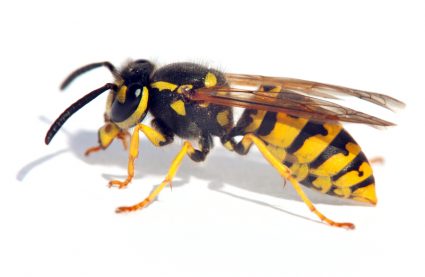
There are several things in our environment that can emit a smell similar to that of a skunk spray. While skunk smell is unmistakable and quite potent, there are other substances, both natural and man-made, that can produce a similar odor. This article will delve into the details of these substances, their origins, reasons behind the smell, and how to deal with them.
Several substances can emit a smell similar to a skunk’s spray, including gas leaks, certain strains of cannabis, sewer gas, skunk cabbage, and the defensive sprays of some animals. The similarity in smell is due to the presence of sulfur-containing compounds in these substances. If you notice a skunk-like smell in your house, it’s essential to identify the source and address it, especially if it’s due to a gas leak or sewer gas, as these can be hazardous.
Natural and Man-made Substances That Emit a Skunk-like Smell
Many substances can mimic the skunk smell without being a skunk. Some of these include:
- Gas leaks: A skunk-like odor coming through your vents could indicate a gas leak in your HVAC system. The smell is often associated with methyl mercaptan, a gas that smells similar to a skunk’s spray.
- Cannabis: Myrcene, a common cannabis terpene, can smell similar to a skunk’s spray. Some strains of marijuana have a skunk-like aroma.
- Sewer gas: A sewer gas leak is another possible reason for a skunk odor in your house.
- Skunk Cabbage: This plant smells very pungent and reminiscent of a skunk when it is in its blooming phase.
- Other Animals: Some animals, such as striped polecats and lesser anteaters, produce foul-smelling secretions similar to skunk spray as a defense mechanism.
- 1-Butanethiol: This chemical compound has a skunk-like odor but is not present in skunk spray. It is structurally similar to some major constituents of a skunk’s defensive spray.
If you notice a skunk-like smell in your house, it’s essential to identify the source and address it, especially if it’s due to a gas leak or sewer gas, as these can be hazardous.
The Science Behind the Skunk-like Smell
The similar scent between skunks and certain substances is due to the presence of sulfur-containing compounds in both. In skunk spray, the primary stinky compounds are thiols, specifically (E)-2-butene-1-thiol and 3-methyl-1-butanethiol. Thiols are organic compounds with sulfur as a principal component, which gives them a strong, pungent odor.
In the case of cannabis, the dominant sulfur compound responsible for the skunky smell is prenylthiol, or 3-methyl-2-butene-1-thiol. This molecule is also found in “skunked beer” and has been identified in nature but never before in cannabis. The human olfactory system can detect sulfur-containing thiols at exceptionally low levels, which is why the skunk-like odor is so noticeable.
Health Risks and Benefits
Exposure to hazardous substances can lead to various health risks and effects, depending on factors such as the type of chemical, concentration, duration of exposure, and individual susceptibility. Some possible short-term health effects include poisoning, nausea, vomiting, headache, skin rashes, and chemical burns. Long-term health effects may involve disorders of the lung, kidney, and liver. It is crucial to be aware of potential hazards and take appropriate precautions to minimize exposure and protect your health.
Eliminating the Skunk-like Smells
To effectively eliminate or reduce skunk-like smells from your environment, you can try several methods, including airing out the area, cleaning with vinegar, using baking soda or peppermint, using a solution of hydrogen peroxide, baking soda, and dish soap, boiling vinegar, or using commercial skunk odor removers. The sooner and more efficiently you act, the better your chances of eliminating the skunk smell completely and quickly.
Myths and Misconceptions
There are several myths and misconceptions about substances that smell like a skunk. Some of these misconceptions are related to the removal of skunk smell and the nature of skunks themselves. It’s important to distinguish fact from fiction in order to effectively deal with these smells.
In conclusion, while skunk spray is a unique odor, several other substances can mimic this smell. Understanding the source of these smells and how to effectively eliminate them can help maintain a pleasant environment. Always remember, if the smell is due to a gas leak or sewer gas, it’s essential to address it immediately as these can be hazardous.
Frequently Asked Questions
What is the reason behind the skunk-like smell in cannabis?
The skunk-like smell in cannabis is due to a terpene known as myrcene. Terpenes are aromatic compounds found in many plants and are responsible for their unique scents. Myrcene, in particular, has a skunk-like odor and is found in high concentrations in certain strains of cannabis.
What are the potential health risks of exposure to skunk-like smells from gas leaks?
Exposure to gas leaks, often associated with a skunk-like smell due to the presence of methyl mercaptan, can lead to several health risks. Short-term effects may include headache, nausea, difficulty breathing, and eye irritation. Long-term exposure could potentially lead to serious conditions such as diseases of the lung, kidney, and liver.
What are some methods to eliminate skunk-like smells?
Several methods can be used to eliminate or reduce skunk-like smells. These include airing out the area, cleaning with vinegar, using baking soda or peppermint, using a solution of hydrogen peroxide, baking soda, and dish soap, boiling vinegar, or using commercial skunk odor removers.
What other animals produce a skunk-like smell?
Some other animals that produce a skunk-like smell include the striped polecat and the lesser anteater. Like skunks, these animals use their foul-smelling secretions as a defense mechanism.
What are some misconceptions about substances that smell like a skunk?
Some common misconceptions about substances that smell like a skunk include the belief that all skunk-like smells are harmful or that they are all related to skunks. In reality, many substances can emit a skunk-like odor, and not all are harmful. It’s important to identify the source of the smell to address it properly.











